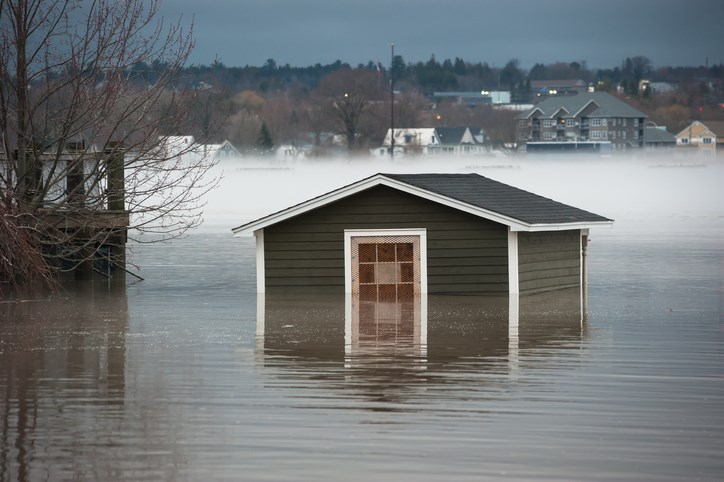Editor:
We, the common people, get to live in a housing crisis, a drug crisis, a cost-of-living crisis, and climate crisis. Though the latter one is still framed as just a ‘change.’
I think that is the root problem — the communication around climate. Calling something a crisis invokes the required response, and failing to do so makes people complacent to it. The rhetoric impacts the action. So how you talk influences what’s going to happen to our climate.
The problem with how language operates and frames is that it shapes how we think about any issue or event. A Stanford University study found that metaphors and language around issues trigger how we understand, reason and act on them. Psychologists have also noted a clear link between language framing and decision making.
Language is key. For example, the previous versions of the word climate crisis, like “global warming.” Weren’t effective. The warming effect stood “true” for say, 30 degrees on June 21. But it couldn’t indicate a catastrophe. “Warming” couldn’t explain the excessive flooding in November. This B.C. flood displaced thousands of people, disrupted the roads and traffic around the region for days and took the life of at least one woman. At max, this word worked to polarize people, in two categories: deniers and believers.
But the climate crisis is a science. Science is not supposed to be polarizing — it’s a fact— unless you think like Donald J. Trump who in an interview with Fox called all of this a “hoax” and compared it to the prophecy of “global freezing” in the 1920s.
Use of the phrase “climate change” is similarly problematic. This word only created government policies and actions which were distant in goal and passive in nature. This framing allowed for politicians to talk about this humanitarian crisis in a facile way: “We are going to reduce emissions, not that we are going to reduce oil and gas” (Danielle Smith, 2023 election campaign).
While we blazed in fire, Alberta premier candidates in 2023, didn’t talk about any concrete climate policies and how it would reshape life in the Canadian prairies. Instead, candidates spent weeks sparring over taxation, Smith’s CBC controversy, and her relations with Ottawa.
Also, the framing of “natural” gas or LNG is interesting. Though burning of the gas might emit only half the carbon dioxide as compared to coal, it is fracked and consumed at rates greater than double in Canada. So, is it really less harmful than coal? And is it really “natural”? As a matter of fact, natural gas is 70 to 90 per cent methane (similar to coal or other hydrocarbons). This reality of “natural” gas is packaged by the economic elites as alternative energy. There are no “green” fossil fuels.
The aim for “carbon neutrality” has a similar trajectory. This word reinforces the idea that it’s OK to continue extractive natural processes like mining and fracking. It gives more agency in the hands of “green” technologies like carbon capturing, using sulfur solvents to lower overall Earth temperatures. This idea makes us reliant on technology and the Silicon Valley elites to help us. That’s not going to happen.
What then?
Since there is a direct link between language and the action on an issue, we need to change how we talk about it.
Call it a climate crisis. A crisis, in dictionaries and encyclopedias, is defined as a “turning point” or “a condition of instability or danger.” That is what the current situation is. In the past two month alone, 45 wildfires affected or displaced at least 16,000 people in Alberta. So why do we shy away from calling it a crisis? Well, because of corporate greed in place.
In the 1980s we knew about climate science too. But the Koch Brothers climate science denial campaign went to great lengths to influence and cripple any government action on the crisis. These economic elites would have wanted us to die — hiding truth to keep their vested interest intact.
Still the mess remains, albeit it’s a communication problem this time. We are becoming complacent (again). This time because of the passive- neutral framing in public conversations and media.
What do we do? Radically change how you talk and get informed on the climate crisis. As a student living in Burnaby, I appreciate the stance of our mayor and city councillors. But it’s high time to go beyond it. It’s time to have info sessions, public meetings where academics and political leaders meet to decide and fill gaps in action and recommendations, and community events to celebrate not only nature, but the vibrant Burnaby community. Let’s talk more about climate - in terms of a crisis, that needs action now.
It is a “now” problem, not a “later” problem! Let’s stop the “just” transition and “natural” gas from becoming one of the many corporate industry shams.
Alternatively, we can definitely not call it a crisis, like we have done for the past for decades. It will just leave us with smoky air to breathe, scarcity of water, more tax for you and me to build useless technologies, inability to have vacations or fly at all.
Just choose wisely.
Pranjali J. Mann
Communications student, Simon Fraser University





